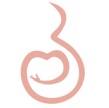Can I breastfeed and how?
- Dr Tan Thiam Chye

- Jun 18, 2018
- 2 min read
Updated: Apr 25, 2019
Congratulations! Now that your baby has arrived, perhaps one of the most immediate decisions is whether to breastfeed.

All mothers should consider seriously breastfeeding their infants exclusively at least for the first six months for optimal health of the baby. Breastfeeding can be continued thereafter with other food until the baby is two years and beyond as desired.
Benefits of Breastfeeding
Benefits are plenty for the infant. Breastfeeding decreases the risk and severity of infections like diarrhoea, respiratory infection and urinary infection. Infants with a family history of allergy, who are exclusively breastfed, also had significantly lower risk of allergic disease.
Breastfeeding is beneficial to mummy! It is well studied that breast and ovarian cancer is reduced in women who had previously breastfed. This protective effect increases with longer duration of breastfeeding. You will also return to your pre-pregnancy weight quicker.
Mothers who should not breastfeed
Mothers with human immunodeficiency virus (HIV) infection, tuberculosis infection and those undergoing chemotherapy, should not breastfeed. Also, mothers who are on recreational drug should not breastfeed.
Prepare for Breastfeeding
Have a breast check by your doctor for inverted nipples. Seek advice from lactation consultant if you have these problems. Mother with truly inverted nipples often encounter difficulties latching. The use of niplette as a non-surgical correction of inverted nipples may be recommended during pregnancy.
How often should I Breastfeed?
Frequent feeds of 8-10 a day is normal during the initial weeks after birth. Otherwise, pumping of breasts (every 2-3 hours) is needed to maintain the milk supply.
Can Breast Milk be stored?
Breastmilk can be stored. Expressed milk can be safely stored for up to 4 hours at room temperature, 48 hours in a fridge (at 4°C), 3 to 6 months in a freezer (at –15° to –5°C), 6 to 12 months in a deep freezer (at –20°C).
Is Breast Milk alone sufficient to meet my baby's nutritional needs?
The composition of breast milk changes as the baby grows to meet the baby’s nutritional needs. The World Health Organization recommends that babies be breastfed exclusively for the first six months and up to two years of age and beyond. This means there is no need for other liquids or foods in the first six months, and even after solid foods are introduced at the 6th month, breast milk can be given as the main milk drink.



